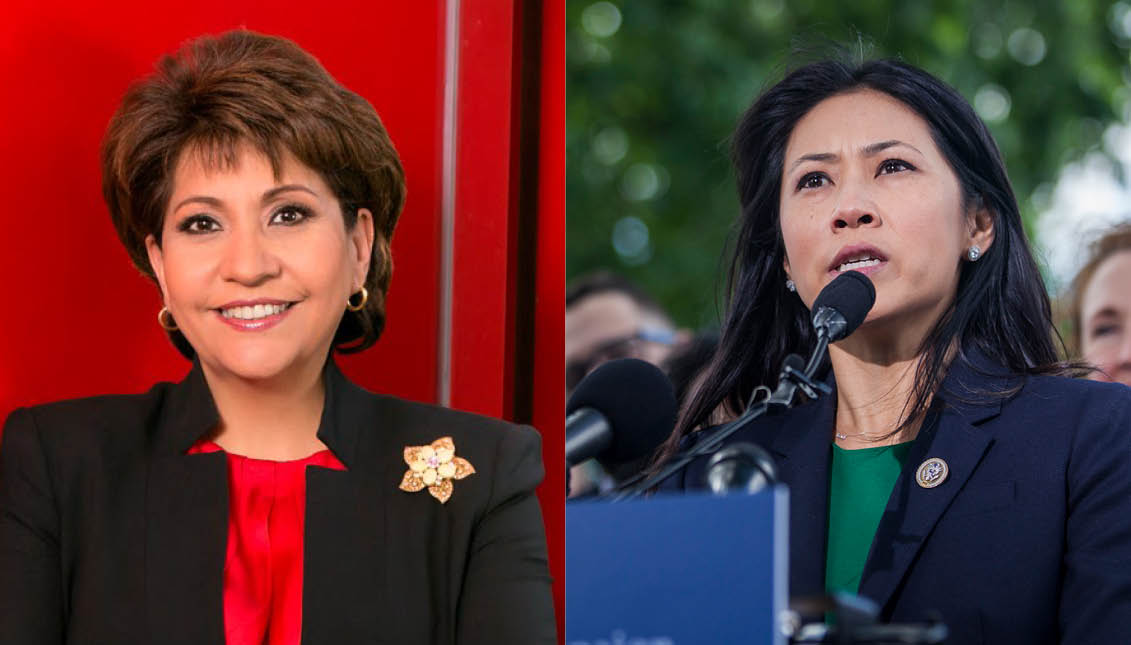
What would paid sick and family leave mean for the Latino Community?
Two female leaders spoke about how Latino families should not have to choose between their health and economic security.
Last week the President & CEO of UnidosUS Janet Murguía and Congresswoman Stephanie Murphy (D-FL) discussed the benefits of paid leave and actions the federal government has taken to enact the policy.
UnidosUS is the nation’s largest Latino civil rights advocacy group. Their president recently told NBC News that the Biden administration has had a decent start in regards to meeting their campaign goals, but there is still more that needs to be addressed.
"After the last four years, the first 100 days has given the Latino community restored hope, a fresh start and a path to a better future, but we are just at the beginning and concerns remain," Murguía said.
The organization released a report on May 10 titled, “Latinos on Biden’s First 100 Days: A Down Payment on Real Progress” and it highlights to what degree President Joe Biden has delivered for the Latino community so far on major public policy matters.
In the section on paid sick and family leave, the report shows that although the Families First Coronavirus Response Act (FFCRA) enacted extensions to refundable tax credits for paid leave, there needs to be a national program that protects millions in the aftermath of COVID-19.
The Family And Medical Insurance Leave (FAMILY) Act introduced by Senator Kirsten Gillibrand (D-NY) was suggested by the report.
Latinos bear the effects of a lack of paid leave more than other Americans.
Immigration status may bar some Latinos from services like Medicaid, Medicare and Social Security. As a whole, nearly one in five lack health coverage, and tend to work in industries that do not offer many benefits to its workers.
According to the U.S. Bureau of Labor Statistics Hispanics represent over 30% of the workforce in the landscaping, crop production and construction industries.
Rep. Murphy has made paid leave one of her legislative priorities since arriving to the House in 2017.
She currently sits on the Ways and Means Committee and the Subcommittee on Worker and Family Support. She is also the first woman of color to co-chair the Blue Dog Coalition, a caucus of moderate House Democrats.
The congresswoman began her remarks in the discussion with UnidosUS by pointing out that among developed nations in the world, the U.S. is one of the few countries to not have a permanent paid leave program of any kind.
Of the 193 member states, only Suriname, Papua New Guinea, the U.S., and a few South Pacific island nations lack national parental leave.
Nine states and the District of Columbia have laws requiring employers to provide paid family leave, but in Murphy’s home state of Florida, where Hispanics make up over 26% of the population, there are no such requirements.
The legislator then shared a personal anecdote about her struggles with the leave policies of a Fortune 500 company.
RELATED CONTENT
“They told me I could take any vacation that I had accrued and three months of unpaid leave. Like so many families faced with a similar predicament, I wondered how I could make this work, how can you go for three months without pay in order to have the family I wanted,” she said.
Murphy ultimately passed on the job offer, but recognized that many mothers are not able to choose between different employment options.
Last March, she introduced the Emergency Paid Leave Act and although it did not become law, many of its core components were included in a larger bipartisan relief package passed by Congress.
The bill included two weeks of paid leave and up to three months of paid family and medical leave, equal to no less than two-thirds of their pay.
Unfortunately, many workers were exempt from this as it only applied to people working in businesses with less than 500 employees, or government workers.
Murguía asked Murphy how her coalition, which believes in fiscal conservatism, plans to tackle this issue moving forward.
“We want to make sure that workers and businesses who are struggling in this moment have the support they need while also being able to extend this benefit to the American worker… We try to find the solution that is as bold as possible, trying to get us to our goal but that has the votes to actually get passed into law,” the congresswoman said.
President Biden has proposed a plan that would guarantee 12 weeks of family and medical leave to workers that would cost $225 million over 10 years.
Rep. Murphy believes that enough support for this measure does exist in both chambers, and she hopes to continue working to ensure it happens.











LEAVE A COMMENT: